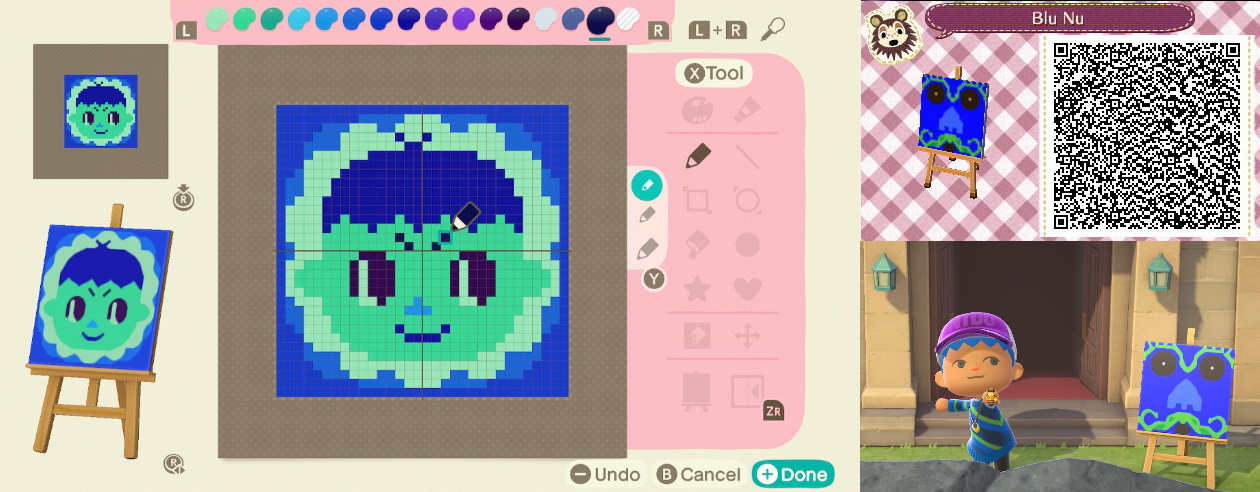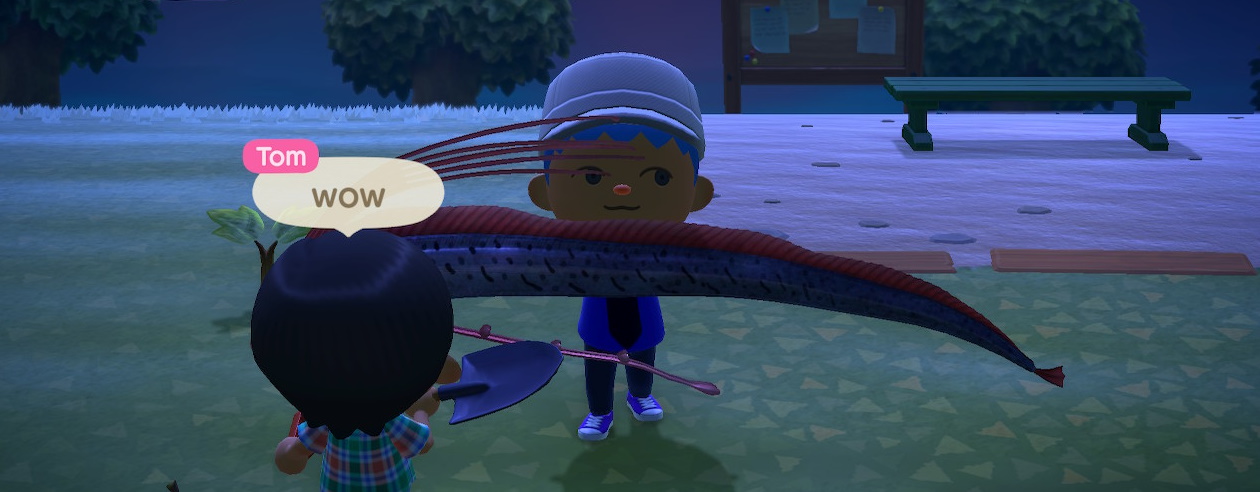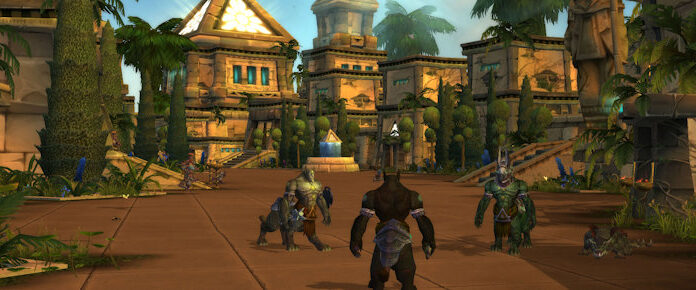
Some of you may have noticed that several staffers and fellow MassivelyOP readers noted that they were playing Animal Crossing: New Horizons last weekend. You’ve probably heard of it before, though. It’s that game that came out the same day as the new Doom. While we may cover a few online multiplayer games that aren’t strictly MMOs, Animal Crossing as a series has a few things that appeal to genre enthusiasts, and the new one’s done a few things that might attract more.
The Animal Crossing Basics
Prior to release, a friend of mine who never played any of the games asked on social media, “Isn’t Animal Crossing just The Sims for furries?” Luckily, that friend was in the safety of her own home and is still alive, but from my understanding of The Sims, that’s not entirely off. Both games are highly customizable sandbox life simulators (having you guide characters through everyday mundane things like doing errands) that have made-up languages and soft goals.
However, The Sims has you acting more like a god from the outside, nudging characters to do what you think is best for them. You are in control of the action without being in it, much like a Pokemon trainer guiding her virtual beast to fight another virtual beast – there’s little chance for them to not listen or to even exceed your expectations. Animal Crossing, by contrast, has you controlling your own avatar for your own “survival,” more akin to Streetfighter. If your Sims go into financial ruin, they’re sad, but you can direct them to do something about it and hope for the best. In AC, if you’re in financial ruin, you… well, you basically gotta figure out how to make money for yourself.
The customization in each game is pretty different as well. The Sims is rather in-depth, with tons of character creation options ranging from detailed facial traits to personalities, as well as having a huge modding community that requires out of game knowledge, much like early MMOs and third-party UI modifications. AC is fairly customizable as well, but it’s almost purely in-game, to the point that any technical modification in past series’ entries could taint one’s game file. Traditionally, a fair bit of customization is actually randomly generated, sometimes based on vague questions and answers. For example, when the salon character asks what kind of color you want, you don’t say “blue”; you say you want a cool, young look.
User-generated content is still king, though. While you can design your own clothing and art with a sort of primitive Photoshop (and share it via QR codes), what most people customize is their home and town. Think about housing in most MMOs. You have various set pieces most people have some access to, but how you arrange them can be quite different. In fact, Nintendo made one spin-off, Happy Home Designer, that is entirely about this, complete with online voting.
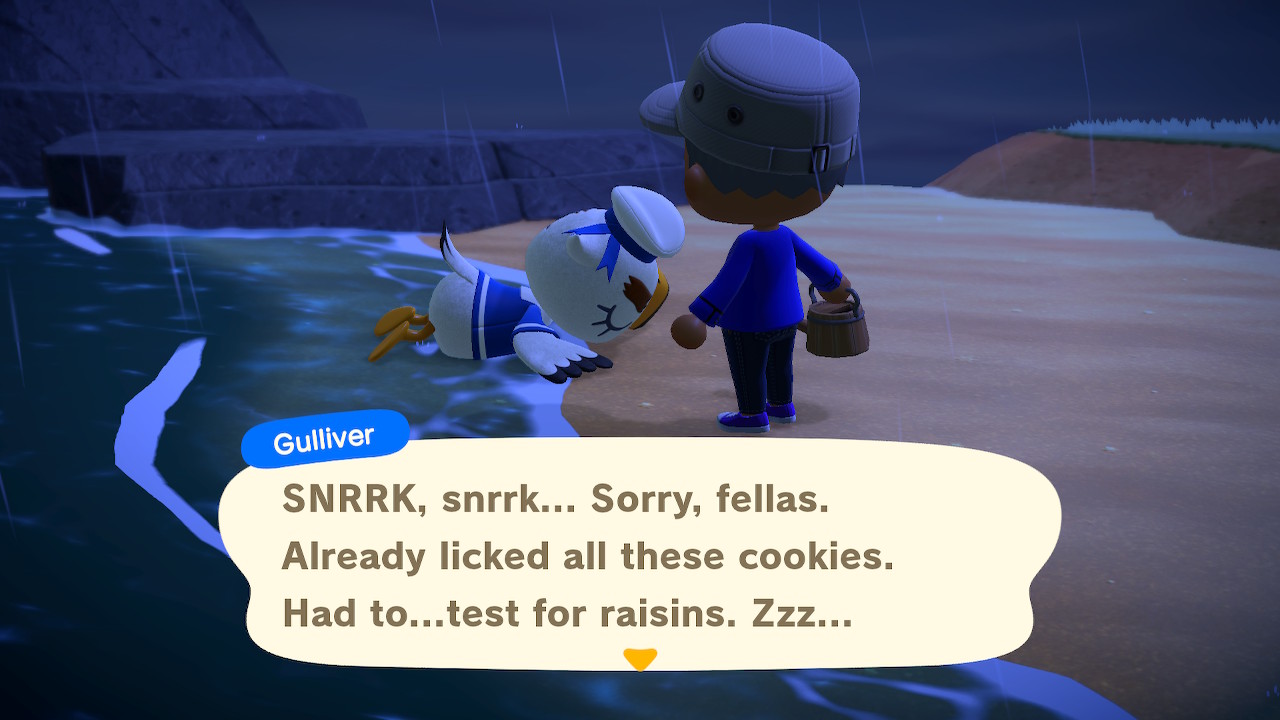
In a sense, it almost feels like guild management, but more fun and colorful, especially as players can visit each other’s towns and help (or hinder) other players if one chooses to do multiplayer. See, Animal Crossing feels like Monster Hunter for MMO socializers. I know this because the guild I used to run had a small AC chapter and that’s exactly how it functioned. The town chatting, fashion-forward, creative/explorer types had a blast expressing themselves or appreciating others’ work, though we didn’t encourage PvP (i.e., ruining random people’s towns), and achievers could easily cheat to “beat” the game. While MH gives you that small-scale raiding feel, AC gives you that “I’m chatting with friends in the capital city while fishing or using the auction house” feel, to an extent.
One shortcoming of the series has often been communication and connections in-game. As the game is for console, you rarely have players with keyboards. Virtual keyboards are slow. Preset phrases or emotes help, but it’s not quite the same. It’s also difficult because long friend codes had to be generated and accepted in past games before you consider the on/off switch needed to coordinate when you can and can’t visit friends each time you play.
However, the series has allowed voice chat in-game, probably partially because players have flocked to websites that include external chat options to make socializing and finding fellow players easier because at the end of the day, no matter how cool or cute our town and home are, AC fans want to share that content with others.
A New Horizon in action
Animal Crossing has had several new iterations, but clearly there’s more here now. Why? Well, for all players, there’s been the distinct lack of a new main series Animal Crossing game for awhile. Nintendo’s Wii U system was the first since the Gamecube to not include a new series entry. Other AC spinoffs have been mixed results, so seeing this game in the wild has been quite the experience.
For MMO fans, there are a few things we knew about that fed the hype. First, the game pushes crafting. Generally the series gives/sells us prebuilt furniture, but it is earned through mundane delivery tasks unless you’re lucky enough to randomly find it by, say, shaking a tree or shooting down a floating present. Admittedly, New Horizons fill-in-the-mats crafting is rather simplistic, but WoW-esque crafting still has its fans, and apparently they’re AC developers and players. I’ll admit, while I prefer something deeper, there’s something satisfying about turning a mountain of weeds into haystack beds and selling them for a sum greater than their original material costs. With launch, though, we also have experienced the thrill of randomly discovering recipes through normal activities, such as catching a tire while fishing leading to a learned furniture recipe or two. As items have durability and there’s a use for eating, NH at times feels like it’s moved the series slightly towards the survival genre, but only in the most fun, PvE ways.
Next, we have another first: furniture outside. We’ve always had to plant our own trees and pick where our houses go, but those were, in a sense, on hooks that were very limited. The difference is like going from Star Wars The Old Republic housing hooks to Star Wars Galaxies‘ open-ended system (yes, I know the chronology of those two games features is weird and seemingly backwards, but that’s the MMO world we live in). While it’s not completely free-form, we also have half square increments and an overhead view method similar to Happy Home Designer, instead of the traditional method that required our character to physically approach a piece of furniture to interact with it.
We also have 8-player multiplayer, double the previous 4-player limitation. Now, for a social game that’s struggled with communication issues, this might not seem like much. However, the Switch is, arguably, more social media-friendly than previous Nintendo consoles. NH allows players to generate a short code for people to enter their town, screenshot it in-game, and post it to Twitter to invite strangers over, allowing player towns to feel more fuller and more alive. While those players can pick certain items up off the ground, there are some limitations that make it more difficult for random players to ruin another person’s town (like, say, using axes and shovels for deforestation).
However, “Best friends,” an elected permission you can grant, not only lets people wield those tools so they can help you with moving trees but allows easier communication when you’re available. You can message people in-game when you’re online or are opening your town, which sounds normal for MMO players but is a welcome option for those of us who venture into less online friendly titles (still looking at you, Pokemon GO).
There’s no in-game voice chat, but the Nintendo Switch app does connect to the game and specifically to the town you’re in as soon as you launch it, making it quite accessible. It sounds good in theory, but so far, I’m finding few people who use it.
Speaking of which, that brings us to another first: viewable quests/achievements. The series has always had some “secret” achievements and quests, such as vague requirements to achieve a “perfect town” and earn a golden watering can to speed up flower-watering duties. However, NH not only added these in their own UI window but put in a currency, called “Nook Miles,” for everything from selling items to getting people to move into your town. These come in two forms: repeatable efforts that rotate throughout your day (such as planting a tree or taking a picture) and one-offs (such as planting each type of fruit in your town). The new currency has limited use, but one of them allows you to visit new, random islands for rare resources, feeding back into the game’s crafting system.
Since launch, though, there’s been one thing that really stands out though: NH plays a lot like a prequel to other main series Animal Crossing games. While we normally have entered pre-lived in worlds, Animal Cross: New Horizons is allowing us to choose, well, everything. As with a parcel of land or town in SWG, we get to pick where all the buildings go, decide who can build where, and create crafting stations, forests, fields of flowers, outdoor markets, or whatever else you can imagine (assuming the game’s systems and players allow it). There’s a freshness about it that surpasses the content in previous games by a long shot, though it does mean waiting longer to do some series basics, such as designing the town flag and tune.
But we’ll see how things play out. One thing that’s important about the series is that, for most of us, the game goes by in real-time, so one day is 24 hours, and much content is gated based on that. While some people may “time travel” to “complete” their town faster or gain riches, many of us are playing the game as it was designed, going at a slower pace. The initial land rush is over, and exploits in riches have popped up, which will probably affect the monetary economy, so people who came a day or two late may feel a little behind, but that’s fine. I’ve seen several people using the hashtag #dodocode on Twitter offering new players to come to their town to get supplies to help them on their way. It’s just the neighborly thing to do, and it’s something I think all MMO players can appreciate from an online community.
Just try not to run over the flowers guys.
 Massively on the Go: Why MMO players will love Animal Crossing New Horizons
Massively on the Go: Why MMO players will love Animal Crossing New Horizons
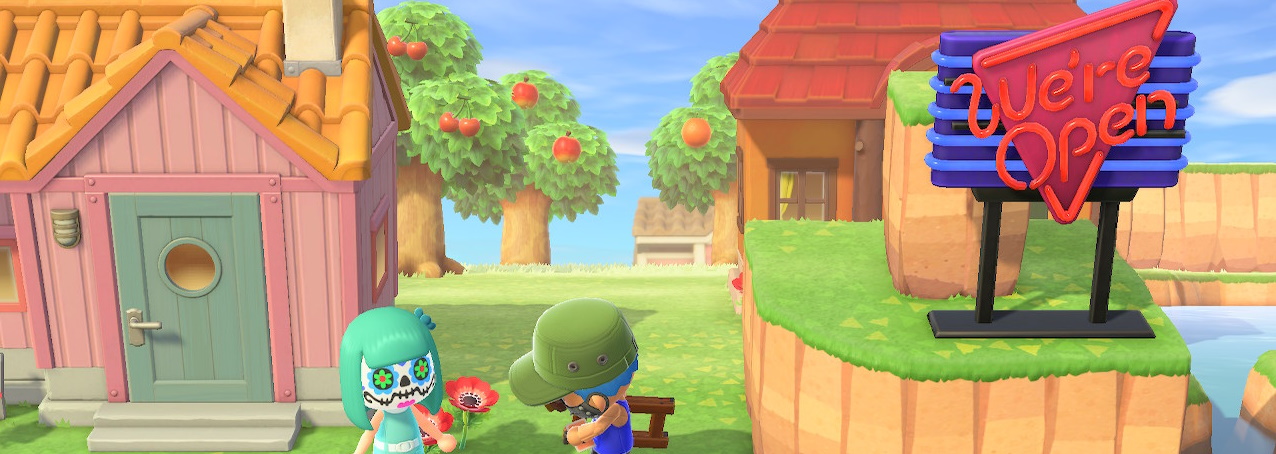 Massively on the Go: Animal Crossing’s housing islands from an MMO player’s perspective
Massively on the Go: Animal Crossing’s housing islands from an MMO player’s perspective
 Massively on the Go: How social media and accessibility blew up Animal Crossing
Massively on the Go: How social media and accessibility blew up Animal Crossing
 Massively on the Go: Fun ideas for online play in Animal Crossing New Horizons
Massively on the Go: Fun ideas for online play in Animal Crossing New Horizons
 Massively on the Go: Getting the most out of your Animal Crossing Warp Pipes
Massively on the Go: Getting the most out of your Animal Crossing Warp Pipes
 Animal Crossing New Horizons adds cooking and island design in major update and paid DLC
Animal Crossing New Horizons adds cooking and island design in major update and paid DLC
 Animal Crossing New Horizons’ massive November 5 update is already live
Animal Crossing New Horizons’ massive November 5 update is already live
 Massively on the Go: Guide to Animal Crossing New Horizons’ Happy Home Paradise unlockables and bonuses
Massively on the Go: Guide to Animal Crossing New Horizons’ Happy Home Paradise unlockables and bonuses
 Massively on the Go: Happy Home Paradise is the cherry on top of Animal Crossing New Horizons’ final update
Massively on the Go: Happy Home Paradise is the cherry on top of Animal Crossing New Horizons’ final update
 Massively on the Go: Splatoon 3 is dividing players in fantastic ways
Massively on the Go: Splatoon 3 is dividing players in fantastic ways
 Massively OP’s Andrew Ross is an admitted Pokemon geek and expert ARG-watcher. Nobody knows Niantic and Nintendo like he does! His Massively on the Go column covers Pokemon Go as well as other mobile MMOs and augmented reality titles!
Massively OP’s Andrew Ross is an admitted Pokemon geek and expert ARG-watcher. Nobody knows Niantic and Nintendo like he does! His Massively on the Go column covers Pokemon Go as well as other mobile MMOs and augmented reality titles!

